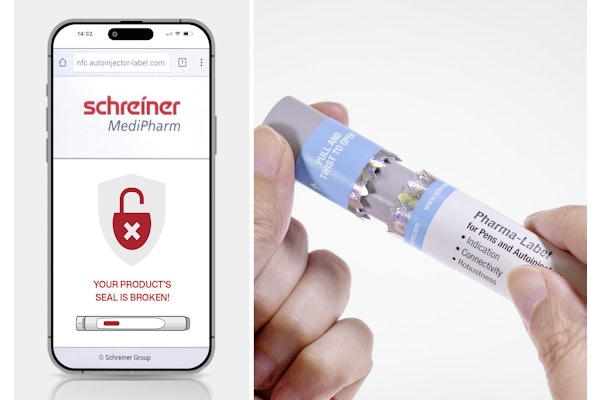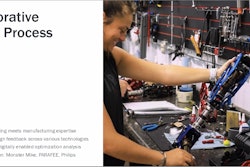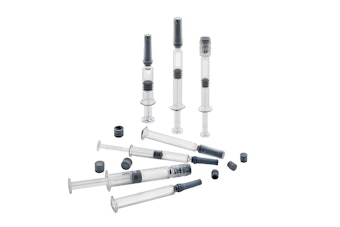CCI is a wholesale distributor and third-party logistics (3PL) provider. It operates a consumer product distribution center in San Juan, Puerto Rico, that manages inventory, distribution, and logistics for pharmaceutical manufacturers.
CCI's test program applies RFID tags to pharmaceutical packs and reads the items' bar-coded shelf locations to electronically capture location and quantities during receiving, stocking, and shipping.
CCI is using the Sybase RFID Enterprise data repository and integration platform as its inventory management system for the launch. CCI will use preprogrammed, reusable 915 MHz UHF ISO 18000-6 RFID tags and readers from Intermec. As of mid-July, CCI was planning to purchase three to five Intermec readers. CCI's 275,000 sq ft facility includes 40,000 sq ft for the 3PL pharmaceutical business, made up of 50- or 100-ft-long rows of 6- to 7-ft-high shelving.
"Because we handle such high volumes of inventory, it is essential that we have the highest level of inventory control, while ensuring that we keep the possibility of human error to a minimum to make the most efficient use of our staff resources," says Dr. Rafael Moreno, CCI's business development director.
"We see RFID as a strategic advantage," he explains, noting that many customers have expressed an interest in RFID. "First to do some internal applications and later to add value for our pharmaceutical customers when they start deploying, either for internal requests to combat counterfeiting or in response to Food and Drug Administration regulations. We want to be ahead of the curve in understanding RFID, getting acquainted with it, and optimizing our operations around it."
He says, "We will implement RFID in a closed-loop operation. We decided to go against convention in terms of not tagging at the case or pallet level or with dock-door portals, but at the item level where it adds the most value for us." He points out that for certain pharma products, a single bottle could be more valuable than a pallet load of consumer goods.
Packages tagged will most likely be prescription drugs rather than over-the-counter medicines, according to Moreno. Initial items will be solid-dose products, such as 100-count bottles of capsules. "The selection is made [based on] the unit cost, security concerns, and product movement," he says. Eventually, CCI expects to use RFID on all its product lines, including liquids, foil blister packs, and metallized pouches. Read the complete article.
--By Rick Lingle, RFID Editor, Packaging World
CCI's test program applies RFID tags to pharmaceutical packs and reads the items' bar-coded shelf locations to electronically capture location and quantities during receiving, stocking, and shipping.
CCI is using the Sybase RFID Enterprise data repository and integration platform as its inventory management system for the launch. CCI will use preprogrammed, reusable 915 MHz UHF ISO 18000-6 RFID tags and readers from Intermec. As of mid-July, CCI was planning to purchase three to five Intermec readers. CCI's 275,000 sq ft facility includes 40,000 sq ft for the 3PL pharmaceutical business, made up of 50- or 100-ft-long rows of 6- to 7-ft-high shelving.
"Because we handle such high volumes of inventory, it is essential that we have the highest level of inventory control, while ensuring that we keep the possibility of human error to a minimum to make the most efficient use of our staff resources," says Dr. Rafael Moreno, CCI's business development director.
"We see RFID as a strategic advantage," he explains, noting that many customers have expressed an interest in RFID. "First to do some internal applications and later to add value for our pharmaceutical customers when they start deploying, either for internal requests to combat counterfeiting or in response to Food and Drug Administration regulations. We want to be ahead of the curve in understanding RFID, getting acquainted with it, and optimizing our operations around it."
He says, "We will implement RFID in a closed-loop operation. We decided to go against convention in terms of not tagging at the case or pallet level or with dock-door portals, but at the item level where it adds the most value for us." He points out that for certain pharma products, a single bottle could be more valuable than a pallet load of consumer goods.
Packages tagged will most likely be prescription drugs rather than over-the-counter medicines, according to Moreno. Initial items will be solid-dose products, such as 100-count bottles of capsules. "The selection is made [based on] the unit cost, security concerns, and product movement," he says. Eventually, CCI expects to use RFID on all its product lines, including liquids, foil blister packs, and metallized pouches. Read the complete article.
--By Rick Lingle, RFID Editor, Packaging World


















